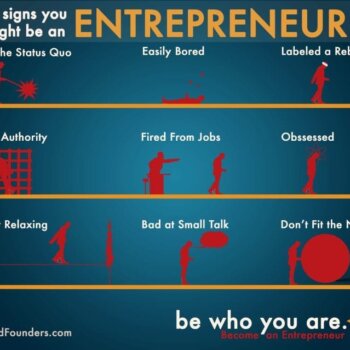Today the Asian Entrepreneur speaks to Kunal Narang, who along with Hiro Mohinani are the founders of MakanLuar, a startup worthy of following.
Kunal Narang, is a former employee at Bloomberg LP (Singapore) and Apple (New York City). He graduated with Economics degree from Clark University (outside Boston). He grew up in Jakarta and graduated from Jakarta International School.
Hiro Mohinani is also a former employee at Bloomberg LP (Singapore) and joined same day as Kunal (started in same management training program). He graduated from National University of Singapore/exchange program with UCLA in California, USA.
What exactly is MakanLuar?
In short – MakanLuar.com is the premier destination for tried & tested restaurants in Indonesia. Select restaurants are represented that we have either tried ourselves or we have been recommended by a community of frequent diners. The service allows users to search in detail such as restaurants offering a reasonable vegetarian selection, by occasion such as afterwork drinks, romantic vibe, high tea. The latest full menu is also viewable since we work with each partner restaurant directly allowing consumers to make educated decisions about their next dining option. Everyone in Indonesia wants to try new restaurants however, there is a significant investment involved in the process such as the time it takes to get there (due to heavy traffic) so consumers are able to quickly choose from select quality restaurants to avoid disappointment and reserve online directly from the site on mobile or desktop. The reservations are made in real-time through a sophisticated back-end technology provided to partner restaurants to receive reservations but it doesn’t stop there. The technology for the first time in Indonesia allows restaurants to provide the same level of service as a 5 star hotel restaurant would by learning more about their customers. The technology enables restaurants to track customer histories, their preferences such as allergies/vegetarian and more so repeat customers receive the level of service they deserve – VIP service. Consumers are rewarded for each online reservation through the MakanLuar.com loyalty program – the more they use the service, the more benefits they earn such as free meal equivalents. This is just like airline frequent flyer miles, think of it like the Krisflyer of dining. Signing up and making reservations for consumers is free so why would you ever walk-in to a restaurant before checking if its on Makanluar.com first?
How did you come up with the idea of MakanLuar?
During our time at Bloomberg LP, both Hiro and myself (Kunal) covered Indonesian clients and we traveled to Jakarta every week from Singapore for this purpose. Wining and dining was frequently on the agenda and it became a tedious process to choose the right restaurant which seemed odd, since Jakarta has gone through a restaurant boom in the past 3 years. Curated online guides focused on quality were non-existent and listing sites with thousands of restaurants proved inefficient in decision making. We had been going to restaurants in Jakarta for over a decade since we grew up in the city but we noticed that the more restaurants opened up, the worse the average level of service and overall quality of the experience seemed to be. Few restaurants bothered to remember their customers, we went to particular restaurants a few times but they never remembered our preferences. That is when we decided that there needed to be efficiencies in place – both from a technology perspective in restaurants and from a personalized representation of these quality-only restaurants perspective for consumers. Hence – MakanLuar’s goal is to be that outgoing friend you call for recommendations who would also hook you up with the best table in the restaurants – the word of mouth equivalent in the online space. While the service is not new and exists in many different parts of the world – there was a lack of dedication to quality and professionalism both in terms of content maintenance and execution.
Could you walk us through the process of starting up MakanLuar?
The process was absolutely new for us and we took awhile to figure out the steps as it was the first business for both of us. However, once we had done our research about the steps and spoken to entrepreneurs who had recently started businesses for advice, we were able to get things sorted out. Things like legal framework, company establishment, recruitment, contract policies, invoicing procedures were all new to us and we learned a great deal very quickly about starting and running a business in Indonesia. We took a very hands on approach I would say and it’s been a valuable educational journey. We continue to learn everyday.
How has it been like managing the business since?
There are challenges along the way in all dimensions and we’ve excitedly taken them up. Things like managing people – employees, vendors/suppliers and customers is done very differently in Indonesia than in Singapore or other regions – these skills are not acquired overnight and it’s been a steep learning curve for us that has helped us grow the business.
Did you find anything particularly difficult during the startup?
Setting up a company in Indonesia can be a lengthy process and at times the steps involved can test your patience. Convincing restaurants to embrace technology in Indonesia was also a challenge. We were able to tackle these challenges head-on by being persistent, patient, and believing in the service we were creating.
How was the initial reaction from the consumers?
It took time for consumers to be able to trust a service like ours in Indonesia, especially since there was no such service on large scale available before. Consumers would use us for information but not so much to make the reservations – they were intimidated, did not see the value, and were generally unsure because of unfamiliarity with such a service. However, once consumers made reservations for the first time, they became more confident about using such a service and loved taking advantage of the benefits on offer. We really made efforts to gain consumers’ trust by customizing the service for the local market – for example, for each reservation consumers make they get an SMS and email confirmation. In most countries where similar services exist – there is no SMS delivery. Once consumers make their first booking, we often see them coming back for bookings at other restaurants. We continue to work hard to educate consumers and get them in their comfort zone with the service. In a few months time since the service has been released, Makanluar.com has also caught the eye of known celebrities such as Farah Quinn, Arie Untung, Sam Brodie and others who have tweeted or posted on Instagram about us.
Do you face a lot of competition in this industry?
Broadly speaking – yes, there is competition however, with regards to comparable quality services for curated quality dining options, we are the only ones in the space. Consumers feel a higher degree of confidence when browsing and selecting a restaurant from makanluar.com because of its personalized tried & tested approach and restaurants retain their brand equity. The overall strategy is and always has been since the beginning to focus on quality of restaurants, execution & technology. We chose to work with a partner for our technology that had vast experience for this service to ensure restaurants get a top product – this is what quality restaurants demand, and we did not want to provide anything sub-standard. We continue to only work with restaurants that are serious about enhancing their service and providing a great experience to their customers, especially loyal customers.
Have you developed any industry insights that you could share?
Lots! As an outsider that has come into this industry – we’ve been able to get an objective bird’s eye view. So far we’ve learned that the restaurant industry in Jakarta specifically has become somewhat saturated in the mid to high-end categories, a new restaurant can open almost every week in Jakarta. Many of the restaurants are focused on sales rather than quality of service, food or retaining loyal customers. This is the hospitality sector after all, selling goods is different than selling a service but sometimes that line isn’t clear in some restaurants. While there is growing demand in Indonesia for a quality product and experience in the restaurant market – there are few that are able to execute well in this regard. It is not necessarily because of a lack of willingness but oftentimes because of the dynamics of the market conditions – labor can be a challenging task to deal with, supplies may not always readily be available are just a few of the challenges they face.
How have you managed to stay relevant in this industry?
By focusing on quality from all angles of the product – everything from working with only select restaurants to present only the best offering to our customers. By using only the best technology and working with the best team for everything from social media to design work to technology development.
What are your future plans for MakanLuar?
Makanluar.com aims to be the premier dining destination for major cities in Indonesia. Rather than a listing of all restaurants – we detail with verified reviews (those that have actually been to the restaurants before) select restaurants which also provide the ability for accepting reservations online – enabling users to take advantage of cash-back and other promotions (discounts/free dishes/free drinks).
If you could start all over again, would you change anything about your approach?
Absolutely, we would be more aggressive from the get-go. Initially we thought about the way we would execute too much, it’s important to get out there, make mistakes if necessary along the way and improvise continuously. Spending time on the drawing board is good but what is often more important is the execution of it all and the improvements made along the way.
What do you think about startups in Asia?
Asia is a truly dynamic place for startups. A lot of startups have a lot of education to do making the task for them more difficult than perhaps it would be in the west. A lot of services abroad still do not exist in Asia, perhaps because the region is not ready yet but also because many are unable to get investors to take the level of risk often seen in the west. The funding environment is quickly evolving in a very positive way however, it still has a way to go in terms of maturity in comparison to the west. Given the above – I think the mobile technologies in Asia are the most exciting and is one segment where Asia may even lead the way.
What are some personal principles or personal values that guide you and your career?
We’ve always told ourselves that we have to believe in ourselves if want others to believe in us. Giving our 100% to our project while knowing there will be significant challenges along the way has helped us in our journey thus far. There is also a lot of ‘noise’ out there in terms of services misleading consumers through “growth-hacking” techniques and claiming to offer or be delivering what they are not. We continue to focus on organic, real-growth. Integrity – trust of consumers has always been our top priority. While others tend to take short-cuts, we prefer to take a genuinely sustainable approach – no gimmicks, no bullshit – only quality.
What is your definition of success?
When the person beside you checks Makanluar.com to plan for his/her next meal with their significant other, friends or family.
Why did you decide to become an entrepreneur?
Both of us had an entrepreneurial spirit, we often spoke about working on projects while we were working in the corporate environment. The challenges one is able to take on very quickly as an entrepreneur is not an opportunity oftentimes available in a corporate environment. As an entrepreneur, one gets to be part of every facet of the business – HR, sales, operations, marketing, support and more – one is able to gain a valuable skill set through this process regardless of the outcome that is not acquirable otherwise.
What do you think are the most important things entrepreneurs should keep in mind?
Business won’t come knocking on your door – you have to get out there, be persistent, go from failure to failure without losing enthusiasm regardless of how good your product might be.
In your opinion, what are the keys to entrepreneurial success?
Salesmanship is a big one. Always remain enthusiastic and optimistic as much as possible even in the most challenging of times is another. Stick to your broad vision – don’t get carried away too much by what your competitors may be doing and the noise you may be hearing out there.
Any parting words of wisdom for entrepreneurs out there?
Just get out there and do it if you are serious about working on something. Don’t think about it for too long – it’ll drain the energy behind it all.
Stay resilient – starting a business is always immensely challenging, as they say “when the going gets tough – the tough get going.”
Connect
Website: http://www.makanluar.com
Facebook: http://www.facebook.com/makanluarindonesia
Twitter: htp://www.twitter.com/makanluar
































